 |
 |
 |
| |
LONGITUDINAL COGNITIVE OUTCOMES AFTER TREATMENT IN ACUTE HIV INFECTION
|
| |
| |
Reported by Jules Levin
25th CROI March 4-7 2018 Boston MA
Phillip Chan1, UmitTokac2, Joanna Hellmuth3, Eugene Kroon1, Donn Colby1, Carlo Sacdalan1, James Fletcher1, SompornTipsuk1, SuteerapornPinyakorn4,5, Merlin L. Robb4,5, JintanatAnanworanich1,4,5, Victor Valcour3, Serena Spudich6, Robert Paul2on behalf of RV254/SEARCH 010 Study Team
WEBCAST: http://www.croiwebcasts.org/console/player/37288?mediaType=slideVideo&&crd_fl=1&ssmsrq=1521153192953&ctms=5000&csmsrq=905
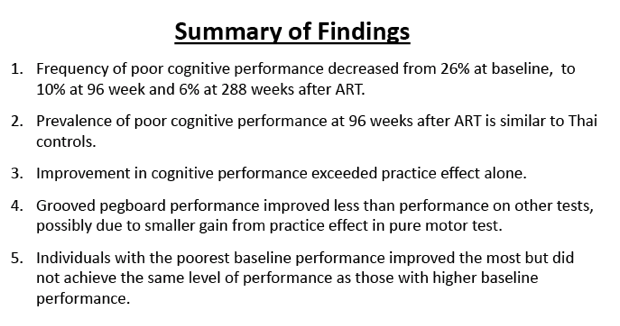
Program Abstract:
HIV-infected individuals continue to exhibit cognitive dysfunction despite achieving viral suppression with antiretroviral therapy (ART). It remains unclear if initiation of ART during acute HIV (AHI) results in more favorable long-term cognitive outcomes.
Participants included 445 AHI individuals (Fiebig stages I-V) who initiated ART within 30 days after diagnosis and maintained virologic control over the study period. They completed a brief cognitive battery that measured fine motor speed and dexterity, psychomotor speed, and executive functioning at baseline before ART and then at 2 years (n=262) and 6 years (n=47) after ART with sustained viral suppression. Global cognitive performance (NPZ-4) and frequency of cognitive impairment (performance < -1 SD on ≥ 2 tests, or <-2 SD on ≥ 1 test) were determined at baseline and follow-up. Group-based trajectory analysis (GBTA) compared longitudinal test performance of the AHI group to performance obtained from 99 HIV-negative healthy Thai individuals. Meaningful cognitive change was defined as performance differences ≥ 0.5 SD or > 1 standard error of measurement. Multiple regression models examined the co-variance between test performance and demographic/clinical variables.
Most participants were male (>90%), with a mean age of 26 years (Table). Cognitive impairment was identified in 26% at baseline, 10% at 2 years, and 15% at 6 years. Baseline plasma HIV RNA correlated with baseline NPZ-4 (p=0.005, adjusted β=-0.103, 95% CI -0.176 to -0.031). GBTA revealed significant improvement in cognitive test performance in all participants from baseline to year 2, and from year 2 to year 6 (all p<0.001). In addition, the time effect analysis showed that individuals' NP performance significantly changed overtime (F(32,2) ≥21.36, p<0.001). The average degree of improvement (Δz-score=1.22) exceeded that estimated from practice effects alone. In addition, the average degree of improvement was more pronounced for individuals who had z-score <-1 at baseline (Δz-score=2.61).
Our findings reveal favorable long-term cognitive performance in the context of ART-induced viral suppression initiated during early infection. Improvement occurs in the cohort over the course of treatment and exceeds that expected from practice effect. The results suggest the need of proactive identification and health care system readiness for this unique group of patients.
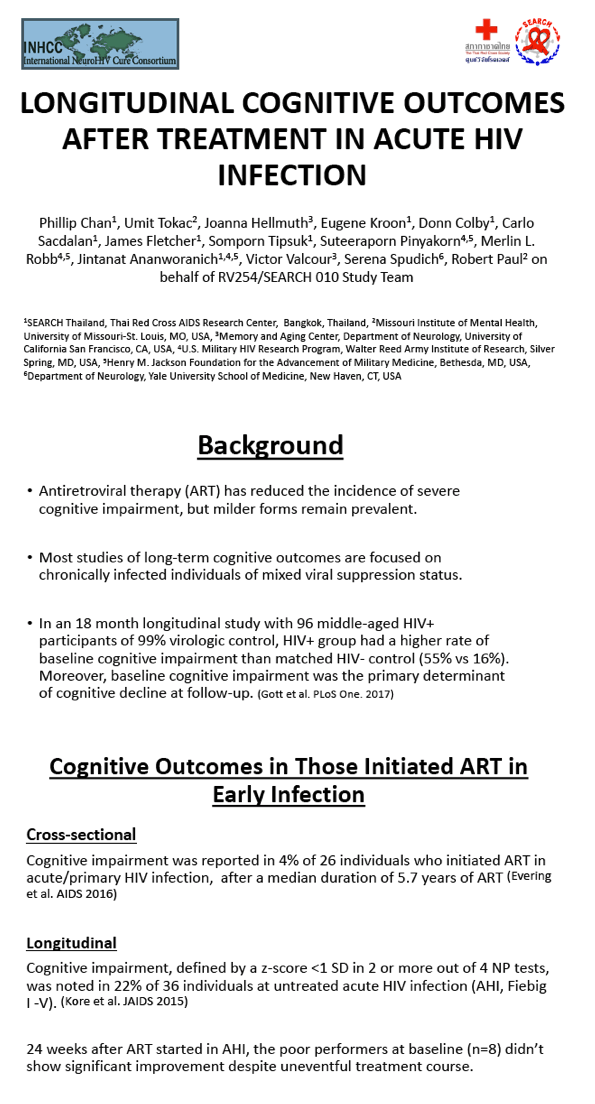
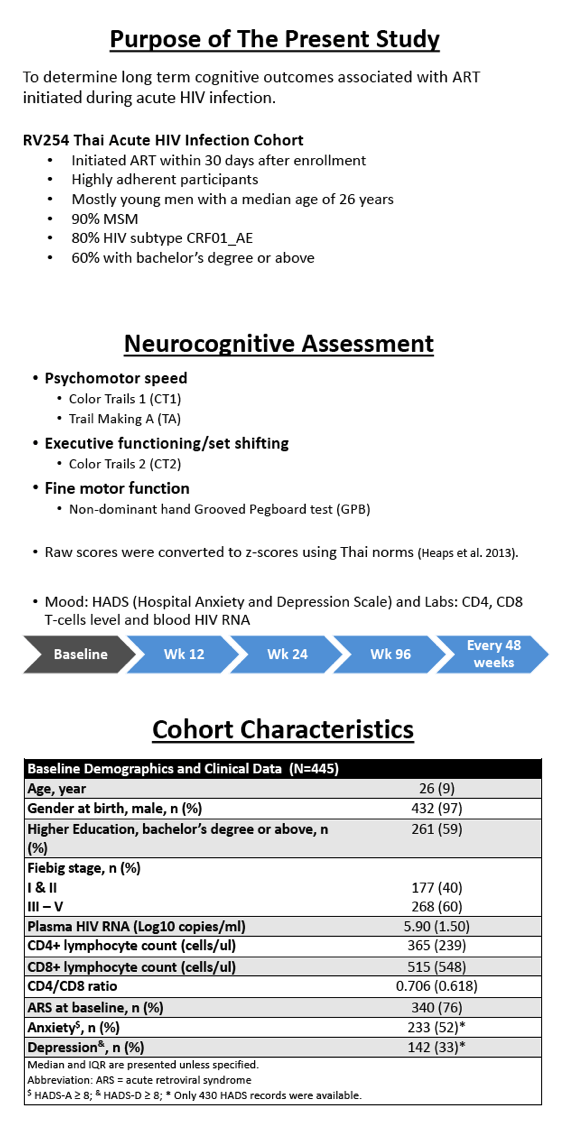
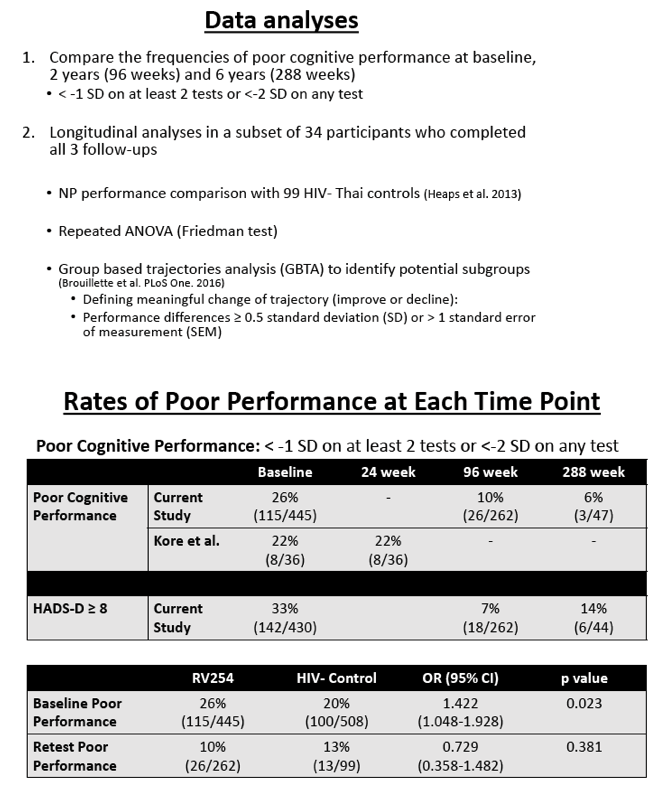
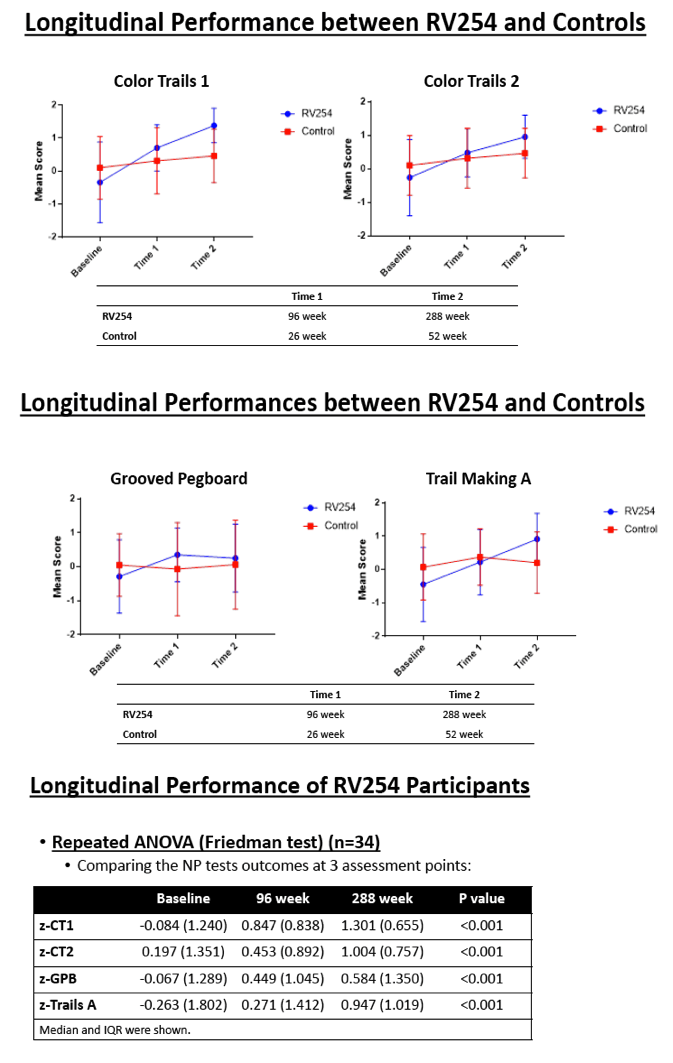
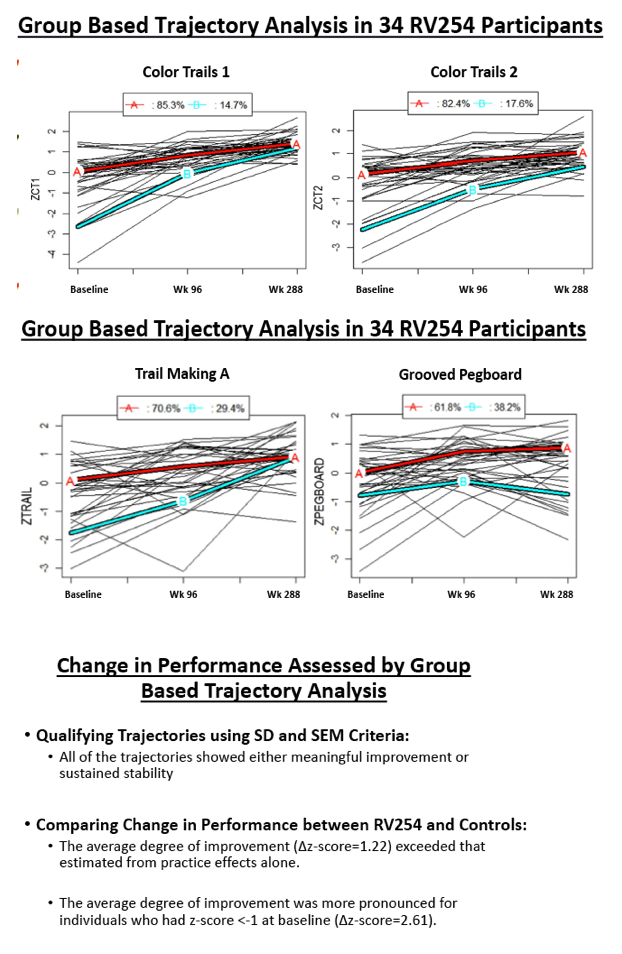
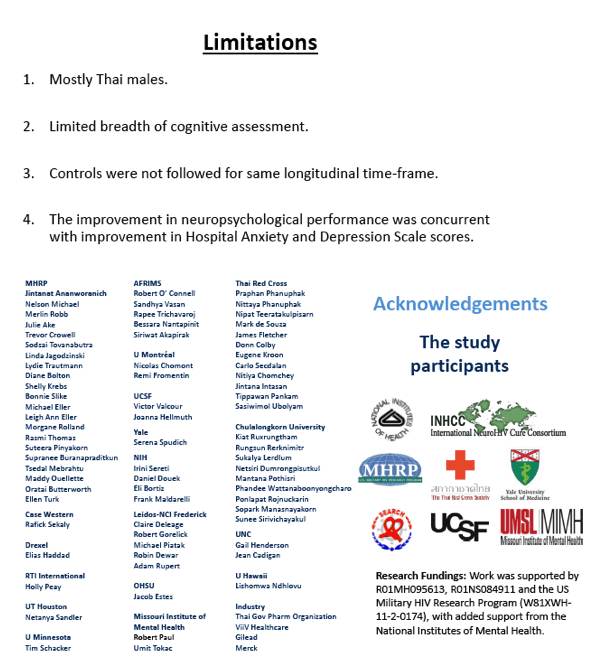
|
| |
|
 |
 |
|
|